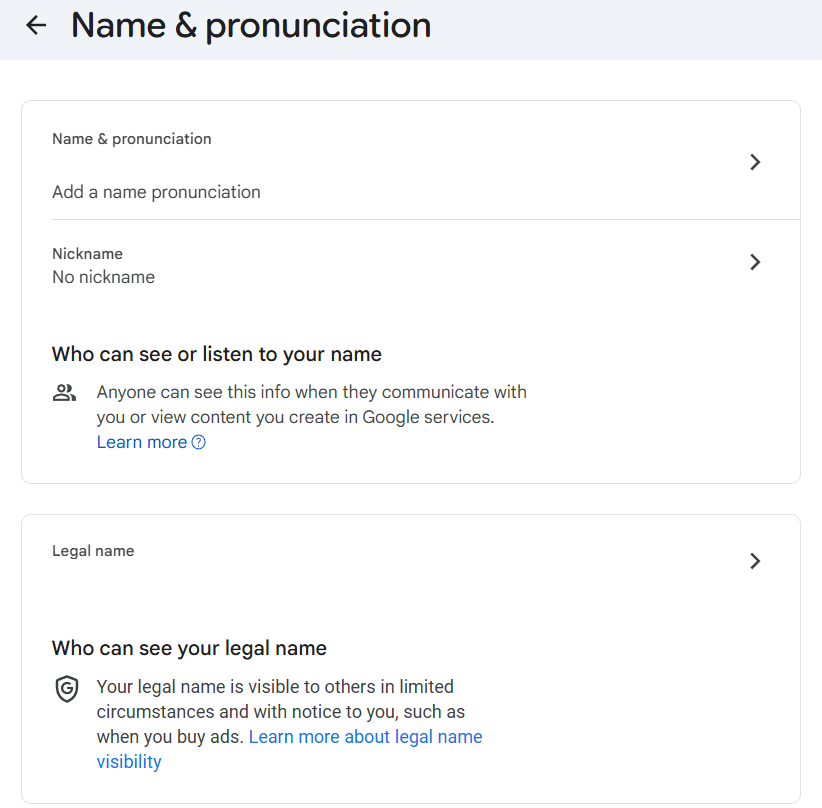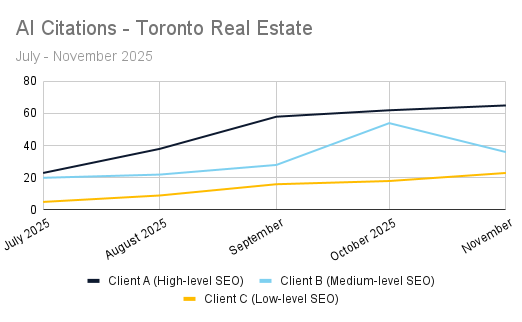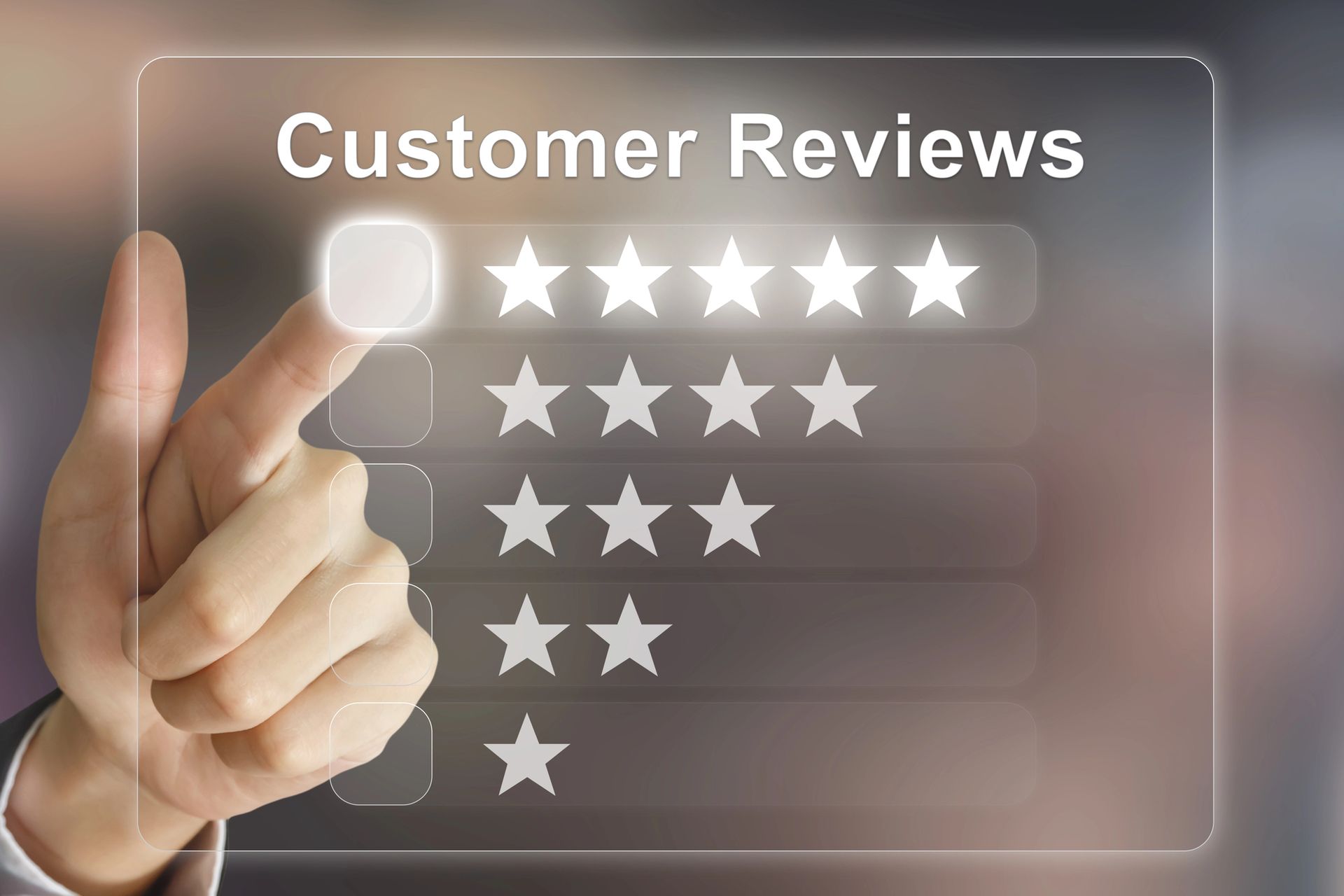The AIO/Organic Overlap: How AI Search Is Quietly Rewriting SEO Strategy
Every major shift in search brings a wave of anxiety. The rise of AI Overviews (AIO), those generative answers appearing at the top of Google results, has many business owners wondering if traditional SEO still matters.
At Conscious Commerce Corporation (CCC), we understand that uncertainty. We’ve watched search evolve from simple keyword targeting to a complex web of algorithms, intent signals, and machine learning. The good news? Despite what headlines suggest, AI isn’t replacing SEO; it’s redefining it.
The connection between AI and organic search is stronger than most realize. Studies show that a growing percentage of AI-generated answers are sourced directly from websites that already rank organically. In fact, a 16-month BrightEdge study found that 54% of AI Overview citations overlap with organic search results, up from 32% a year earlier. This phenomenon (the AIO/Organic Overlap) is proof that high-quality SEO is still the foundation of visibility in the AI era.
Our goal in this article is to demystify how AI and SEO now work together, what this overlap means for your business, and how we at CCC are helping brands stay visible, trusted, and profitable in the new search landscape.
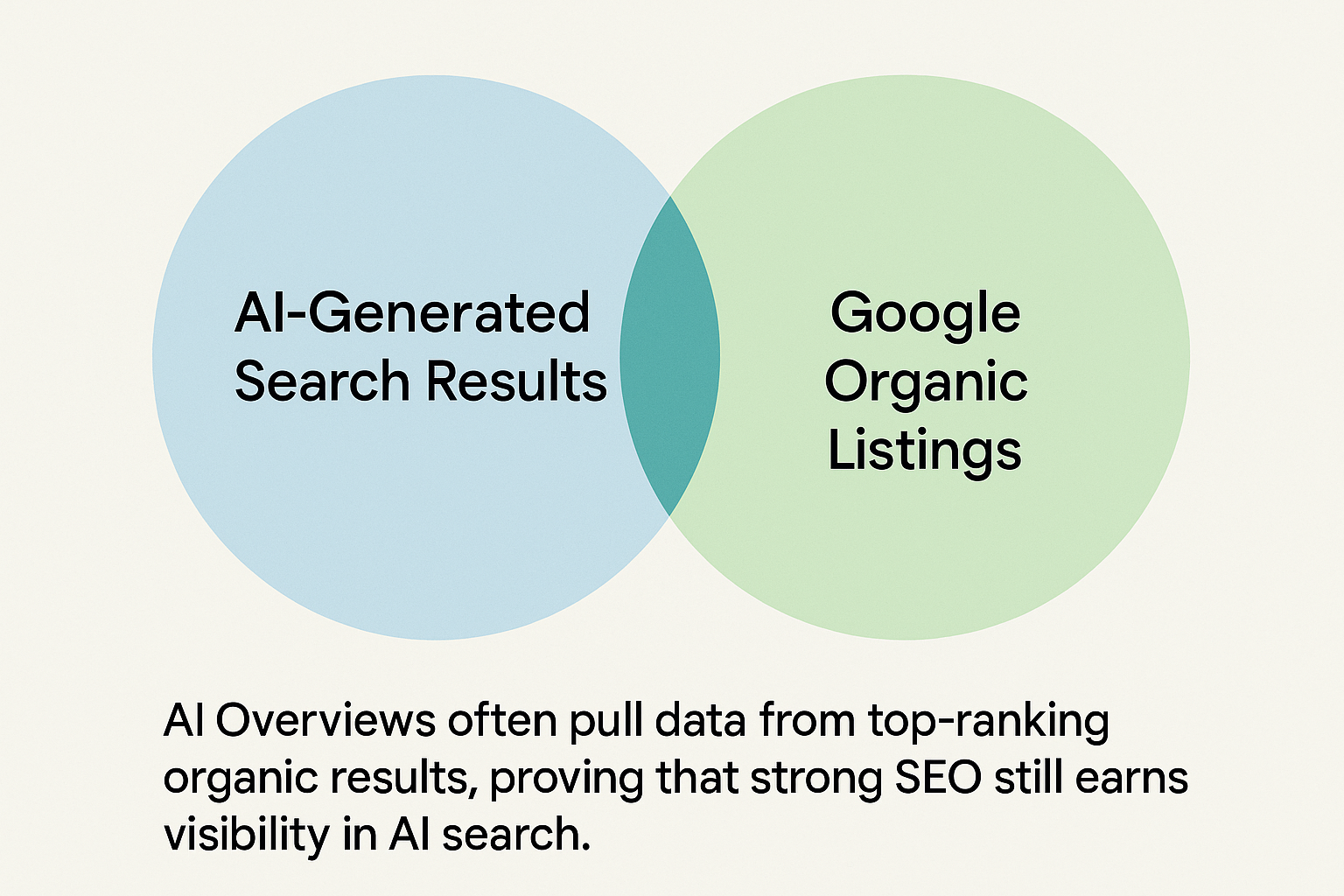
Understanding the AIO/Organic Overlap
What Are AI Overviews and How Do They Work?
AI Overviews are Google’s way of summarizing results for complex questions. Instead of displaying ten blue links, Google’s AI creates a short answer synthesized from multiple credible sources that are usually drawn from websites that already rank well.
These results aren’t random. Google’s AI relies on structured data, E-E-A-T signals (Experience, Expertise, Authoritativeness, Trustworthiness), and contextual understanding built through years of content creation and link credibility.
For example, if your business publishes detailed, accurate articles about “eco-friendly cleaning products,” Google’s AI might pull a summary or cite your page in its overview, but only if your site is already seen as a trusted source.
The Data Behind the Overlap
According to Yext’s 2025 report, which analyzed 6.8 million citations across ChatGPT, Gemini, and Perplexity, 86% of AI citations come from brand-controlled or brand-influenced sources such as websites, listings, and reviews.
Meanwhile, research from seoClarity found that roughly 49% of AIO citations originate from the top 20 organic search results, proving the strong connection between ranking performance and AI inclusion.
A complementary Ahrefs study that analyzed 1.9 million AIO citations revealed that 76.1% of cited pages rank in Google’s top 10 results, while just 14.4% were outside the indexed top-100.
In other words, if you rank well organically, you’re more likely to be cited or referenced by AI systems. That overlap tells us something important: SEO fundamentals haven’t died, they’ve become prerequisites for AI visibility.
Why AI Is Not the Death of SEO
The Misconception: Zero-Click Means Zero Value
When Google first introduced AI Overviews, some marketers panicked over “zero-click searches,” the idea that AI answers everything, leaving users with no reason to visit websites.
But that perspective misses a key shift: visibility now happens before the click.
If your brand appears within an AI Overview, in a Perplexity answer, or even in ChatGPT’s citation pane, you’ve already earned top-of-funnel trust. The users who still click through are more qualified, more intentional, and far closer to converting.
At CCC, we help clients track visibility beyond traffic, focusing on metrics like brand mentions, assisted conversions, and share of voice. That’s how we ensure your brand stays visible and valuable, even if traditional click counts fluctuate.
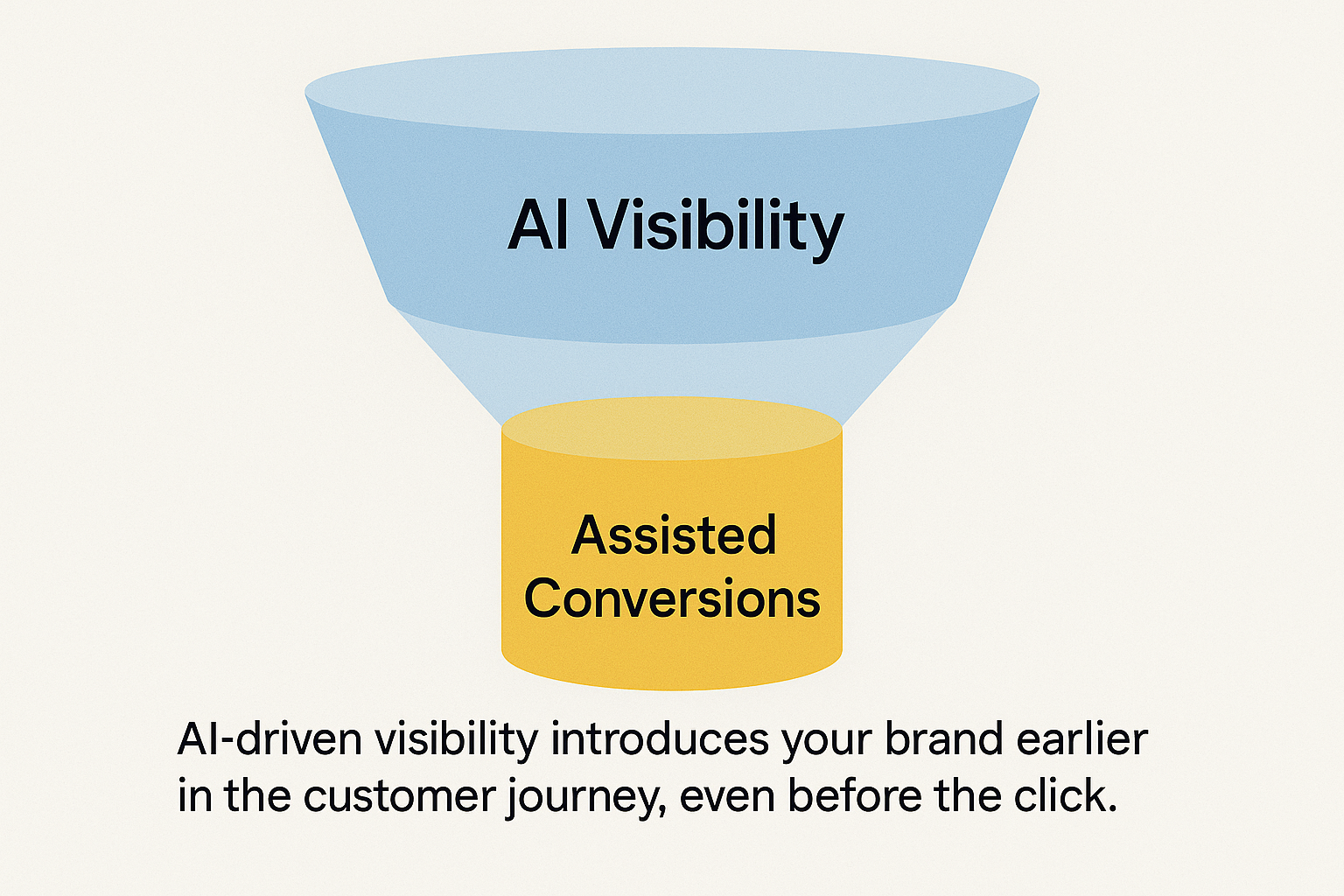
Why Search Engines Still Crawl Websites
Even in an AI-driven ecosystem, websites remain the source of truth.
As Google’s own Liz Reid, Head of Search, stated in 2024, “If you produce really high-quality content… users are going to want to click in further. There’s more push on niche content.” (Search Engine Land interview)
AI systems don’t create knowledge; they summarize what already exists online. They depend on well-structured, crawlable, and contextually rich content to fuel their responses.
That’s why CCC continues to emphasize technical SEO and on-page structure. Our MAP Web platform ensures your pages remain optimized for both traditional crawlers and AI systems. We implement schema markup, build internal linking networks, and maintain content hierarchies that make it easy for search engines (and AI) to understand what your site represents.
How CCC Bridges AI and SEO
Our Hybrid Approach: Human Insight Meets AI Precision
We believe that the future of SEO lies in the synergy between human expertise and machine precision.
At CCC, our strategists use AI tools to analyze keyword trends, identify content gaps, and cluster search intent, but the real strategy comes from people. We interpret data with experience, intuition, and creativity that AI simply can’t replicate.
This hybrid model means our clients get the best of both worlds:
- AI-driven analysis for faster insights and predictive optimization.
- Human-driven strategy for storytelling, emotion, and authentic connection.
The Human Advantage
AI can generate words, but not wisdom.
That’s why our campaigns focus on authentic storytelling, experience-backed insights, and trust signals that reinforce your brand’s credibility. We know that AI engines value expertise, and that means publishing real stories, author bios, and original perspectives.
In short, we use AI to enhance human creativity, not replace it.
Proof in Practice
Across our campaigns, this hybrid model consistently delivers results:
- 18% average organic traffic growth for managed SEO clients
- 200% increase in Google Business Profile search views
- 20% average increase in
conversions
These results aren’t luck; they’re the outcome of aligning modern AI tools with timeless marketing fundamentals: relevance, authority, and storytelling.
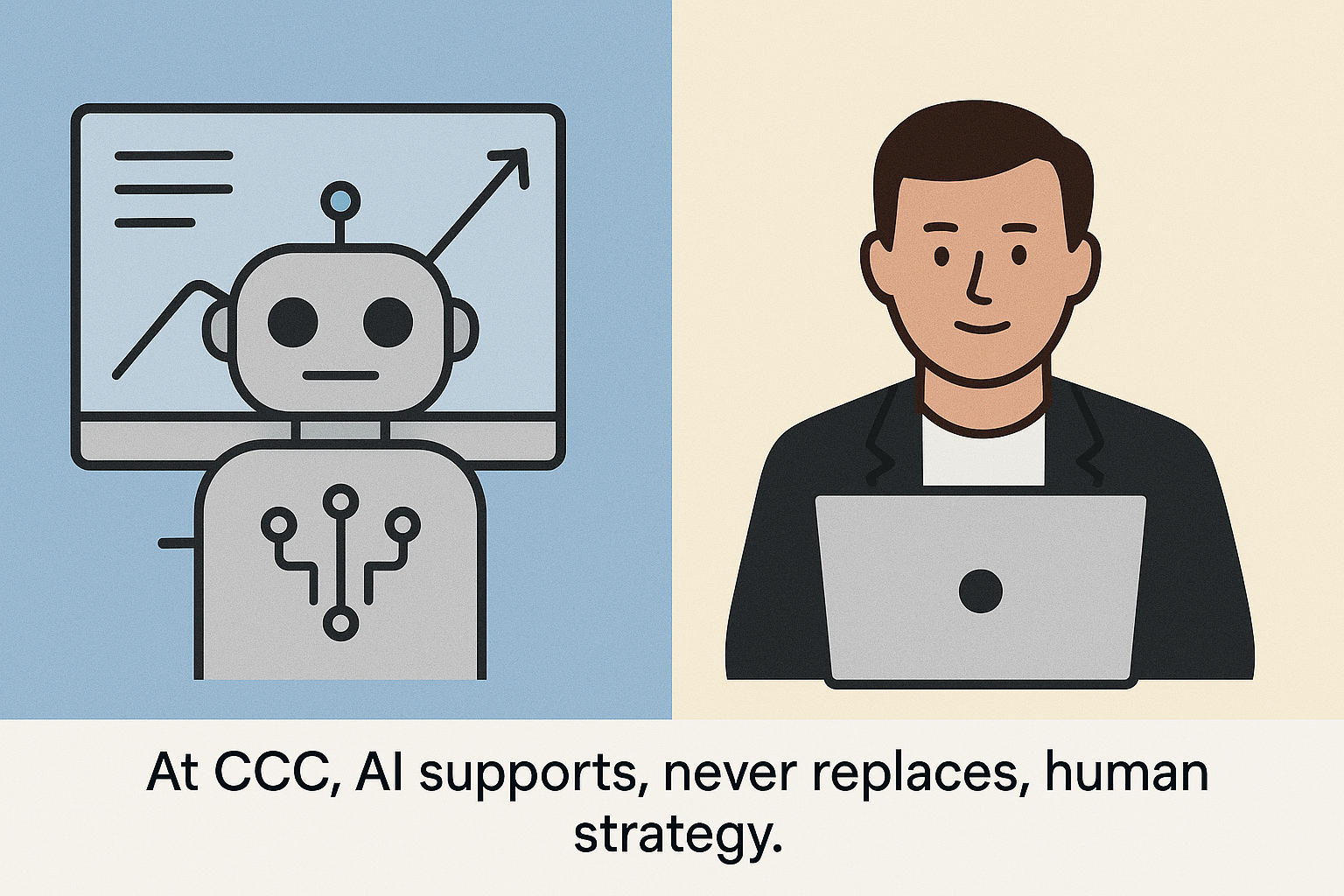
Adapting Your SEO Strategy for the AI Era
1. Focus on Semantic Depth, Not Just Keywords
In traditional SEO, we optimized for keywords. In AI SEO, we optimize for concepts.
AI engines understand topics and relationships, not just word matches. That means the key to ranking, and being cited, is creating semantic depth: comprehensive coverage of niche subjects, written naturally, and linked internally across related pages.
2. Optimize for Brand Authority, Not Just Search Volume
In the AI era, authority is the new currency.
We’ve doubled down on E-E-A-T (Experience, Expertise, Authoritativeness, and Trustworthiness) because AI systems rely heavily on those signals to decide which brands to feature.
That’s why we guide clients to:
- Add author bios with real credentials.
- Reference credible external sources.
- Maintain consistent publishing cadences.
- Secure brand mentions through digital PR.
3. Technical SEO Still Matters (Now More Than Ever)
Fast load times, responsive design, structured data, and crawlable site architecture are the foundation of both Google rankings and AI visibility.
If your website is technically sound, AI engines can confidently summarize your content. If it’s messy or outdated, you’re invisible.
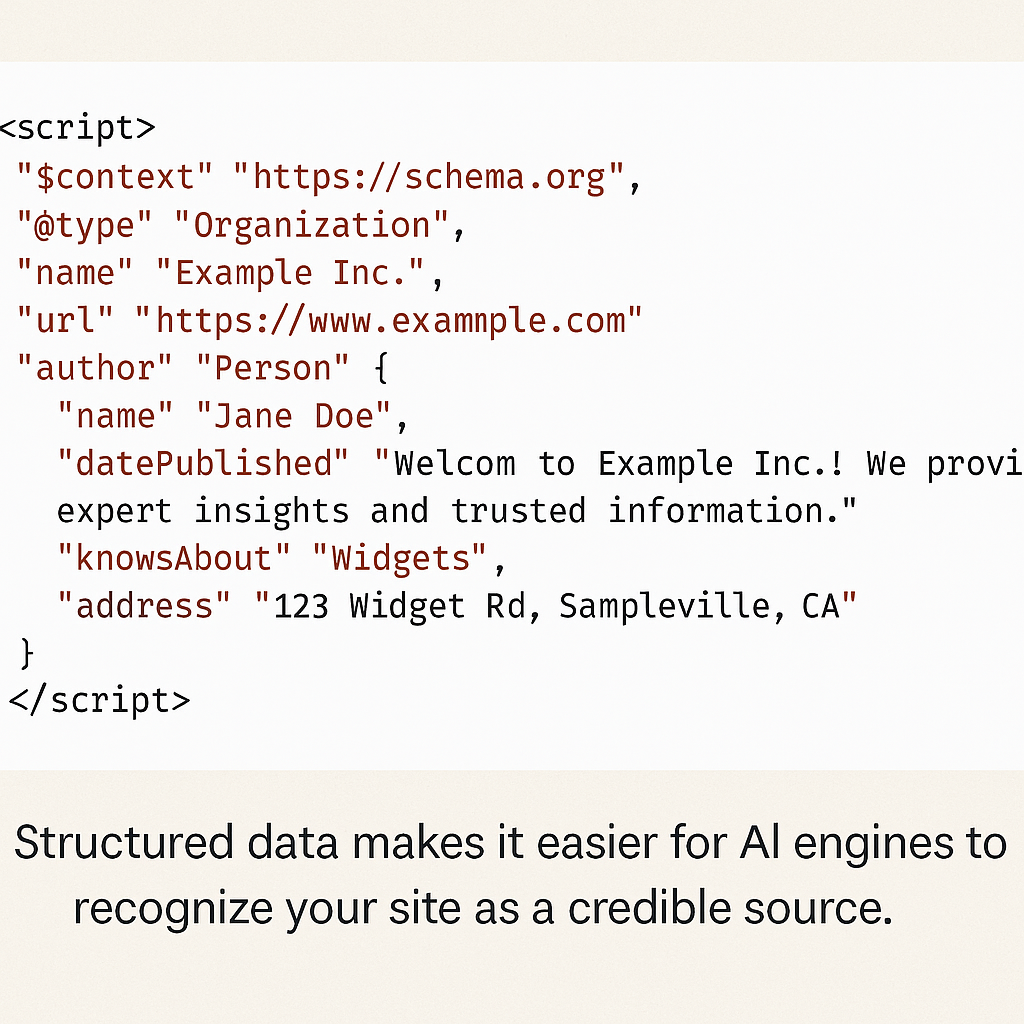
Measuring Success in an AI-Driven SEO Landscape
Beyond Traffic: The New Metrics That Matter
Success in the AI age isn’t measured by clicks alone.
We now track:
- AI visibility: Mentions and citations in AI-generated results.
- Brand recall: How often users search your name after seeing you in AI summaries.
- Assisted conversions: Conversions influenced by top-of-funnel AI exposure.
- Engagement depth: How long users stay and how far they scroll once they do click.
The takeaway? SEO isn’t disappearing, it’s expanding its definition.
Aligning Marketing and SEO Around Trust and Consistency
AI-driven search thrives on consistency.
Brands that maintain strong cross-channel alignment, through blogs, GBP updates, and local citations, earn more credibility in AI systems.
For example, a business with consistent NAP (Name, Address, Phone) information, verified reviews, and regular blog updates gives AI multiple trust signals. That’s why we integrate SEO, local search, and digital PR into unified campaigns, so every mention reinforces your authority.
The Future of SEO Is Human-Led, AI-Enhanced
As marketers, we’ve seen every major disruption framed as an apocalypse: mobile-first indexing, voice search, Core Web Vitals, and now, AI.
But each time, SEO evolved.
AI is not the end of search; it’s the next chapter. It rewards substance, structure, and authority, precisely what high-quality SEO has always aimed to deliver.
At CCC, we believe the winning formula isn’t choosing between AI or humans, it’s combining the best of both. AI helps us analyze faster. Humans help us communicate better. Together, they help our clients grow smarter.
AI Search Relies On Human-Created Value
If your content educates, inspires, and builds trust, it will find its way into both organic rankings and AI-generated results. At CCC, we’re not chasing shortcuts; we’re building future-proof SEO strategies designed for the world where humans and AI learn together.
We’ll show you where your visibility overlaps with AI search results and how to strengthen your authority online, without losing the human touch that makes your brand unique.
FAQs About AI and SEO
Can AI optimization replace traditional SEO?
No. AI tools can automate analysis, but without human insight and creativity, content becomes generic. True performance comes from the balance of both.
How does CCC help my business appear in AI-generated results?
We strengthen the authority signals AI systems rely on: structured data, expert content, and brand trust, so your website becomes a preferred source for citations.
Will AI reduce my website traffic?
It might reduce surface clicks, but it increases qualified clicks. The people who visit are more likely to convert because they’ve already seen your brand cited as credible.
Do I need to invest in AI tools myself?
Not necessarily. We integrate leading AI technologies into our SEO workflows so you benefit from smarter optimization, without adding new costs or complexity.
Is blogging still worth it in the AI era?
Absolutely. Blogging remains one of the best ways to demonstrate expertise and provide depth that AI systems depend on for accurate, trustworthy answers.



